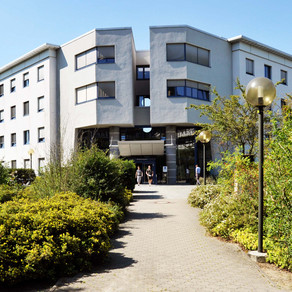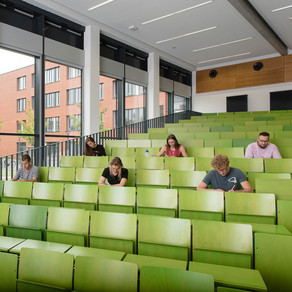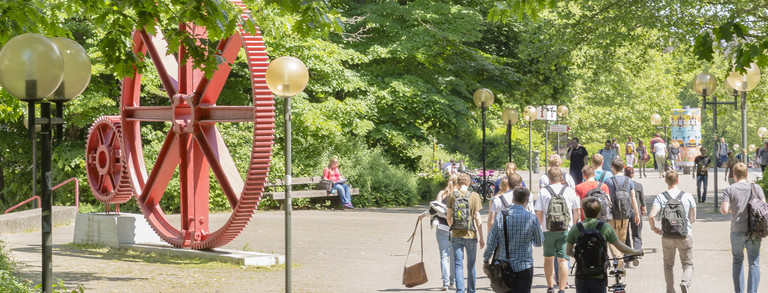
U-TURN
Reducing impacts and costs of freight and service trips in urban areas
Sponsor: European Union
Duration: 06.2015 - 05.2018
Project partner:
- Intrasoft International SA (Belgium)
- Athens University of Economics and Business (Greece)
- Barilla (Italy)
- Cranfield University (UK)
- LCP Consulting Limited (UK)
- Optilog Advisory Services (Greece)
- SimPlan AG (Germany)
- Dortmund University of Technology (Germany)
- TRT Trasporti e Territorio (Italy)
In Europe, about 75% of the population lives in urban areas and it is foreseeable that this percentage will increase to 80% by 2020. In terms of the environmental and sustainability aspects of cities and towns, significant impacts can be attributed to food transport. These impacts will increase even further following current consumer trends such as purchasing packaged goods at smaller retail stores within cities on a regular rotation, seeking fresh quality products at specialized and local stores, or shopping online with special delivery requirements.
The U-TURN project will contribute to the understanding of goods distribution in urban areas, with special attention to the specific requirements and needs of food transportation. Innovative forms of collaboration and specific supporting tools will contribute to the achievement of efficient operations in terms of environmental and cost considerations. The project aims to exploit the opportunities brought by a consolidation of the three different food transport flows in urban areas.
- From food suppliers to points of sale in urban areas, taking into account the growing trend towards shopping in conveniently located, smaller retail outlets
- From local food producers directly to consumers; this represents an emerging trend in large cities.
- From online grocery stores directly to consumers, either through a dedicated depot or from existing stores.
The emerging trends create a new distribution landscape that requires collaboration and consolidation of flows to control costs, traffic and environmental impacts in urban areas. The individual tasks of the U-Turn project can be described as follows:
- Analyze existing food product transportation flows in urban areas.
- Identify opportunities for consolidation of transport flows and define ways of cooperation and alternative logistics bundling strategies.
- Measuring the impact of new opportunities through comparative analysis, financial evaluation, and simulation experiments
- Engaging market participants in a collaborative discussion through focus groups, in-depth interviews, surveys, and brainstorming workshops
- Design and implementation of a simulation tool
- Design and implementation of a collaboration platform
- Evaluation of the findings in practice through pilot projects (realistic scenarios)
- Development of a set of guidelines (strategy plans) to support organizations to plan collaborative transport towards efficient and green urban food logistics
The TU Dortmund University, represented by the Department of IT in Production and Logistics and the Institute of Transport Logistics, will largely perform the simulation and experimentation part of this, including through the later pilot projects. In this work package, the goal is to support decision making regarding urban transport logistics problems across the entire supply chain. Simulation will be used to calculate key performance indicators (KPIs) for decision makers. This will be used to forecast the impact of possible future developments in urban supply and the suitability of different supply chain implementation variants. For this purpose, a reusable simulation model application is designed and suitable tools for evaluating alternative supply chain decisions are developed.
Different scenarios of truck sharing, infrastructure sharing, and information exchange among transportation stakeholders will be modeled and evaluated in terms of economic and environmental KPIs (e.g., service levels, CO2 emissions, and noise pollution). The main objective is to support logistics decisions regarding freight resource sharing and to assist in sizing such systems and assessing potential control methods. The simulation tool will provide the values of the above metrics for each alternative scenario.







